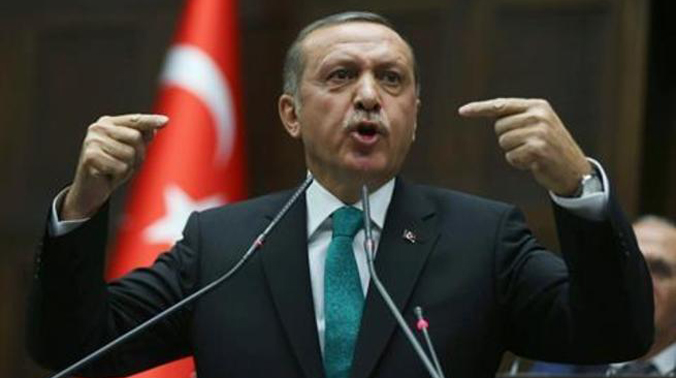Turkish School in Central African Republic Fights Ankara’s Shutdown Bid
Turkey is ramping up pressure worldwide to shut down schools close to a network that it accuses of terrorism. But it is facing unusual resistance in the Central African Republic (CAR), one of the poorest and most vulnerable countries in the world.
The Galaxy school, in the capital Bangui, is close to Hizmet, the group run by U.S.-based Turkish preacher Fethullah Gulen, whose supporters say he promotes a progressive form of Islam.
But Turkey blames Gulen for the attempted coup in 2016 against President Recep Tayyip Erdogan. It has vowed to root out his influence, at home and abroad.
Its intelligence agency MIT has staged several operations, whose nature remains mysterious, to “bring back” suspects as far afield as Kosovo, Ukraine, and Gabon, where three Turks working in education were apprehended in April.
“We will never allow these vile people to walk freely,” Erdogan said after the Gabon operation.
As a result, the Turkish headmaster of the Galaxy school is living as a fugitive and an exile.
“On July 15, 2016, they named me personally as belonging to the Gulen movement,” said the headmaster during a tour of the premises, who asked to be identified by the pseudonym “Emre” to avoid any repercussions for his family back home.
“We’re accused of being a terrorist group when what we are doing is education and humanitarian work,” he said.
The school boasts equipment worthy of a well-funded facility in Europe — a modern digital smart board and a video projector, as well as a classroom devoted to information technology.
The school, which also has playing fields and a canteen, is private. And with fees just over 100 euros ($115) per month, it caters mostly to the upper classes.
The rate of pupils passing the high school exam stands at 83 percent, compared with a national average of 12 percent. The Islamic component in its curriculum is very small, although students can ask to have additional classes.
17 African Nations Closed Schools
Turkey’s efforts have brought about the closure of such schools in at least 17 African countries — which have either been nationalized or taken over by the Maarif foundation that is close to the authorities in Ankara.
Given CAR’s vulnerability, the survival of the Galaxy school so far appears remarkable. The country has been ravaged by rival armed groups and bandit gangs since 2013, ranking last of the 188 countries in the U.N.’s 2016 Human Development Index.
CAR’s institutions of state are feeble and the country has the entrenched reputation of being a place where pretty much anything can be bought. It ranked 156th out of 180 countries in Transparency International’s 2017 Corruption Perceptions Index.
For one staff member at the school, “the Central Africans have upheld their dignity,” in being a country that has not ceded to Turkish pressure.
Jean Serge Bokassa, a former minister of security and territorial administration, said Turkish diplomats visited him in March last year, dangling a mixture of “verbal intimidation and promises” if he conceded to Ankara’s demands.
A second minister said he too was approached and offered “presents” and trips to Turkey.
“I told them, ‘If you want to help us, build an establishment instead of closing one down’,” that minister said.
“They said that if I accepted, I wouldn’t regret it.”
No Diplomatic Ties
The school’s survival “is above all because there is no Turkish embassy in the country, with few economic and diplomatic ties,” according to an expert in the case.
“Moreover, the management of the school has very good relations with the government — the deputy director is the prime minister’s wife — and the academic level is very high.”
Although Bokassa says he is a political foe of President Faustin-Archange Touadera, he commends him for standing firm against Ankara.
“For the moment, I’m delighted that the president has conceded nothing.”
Turkish Teachers Linked With Erdogan Foe Face Risk of Expulsion in Gabon




Comments are closed.